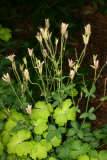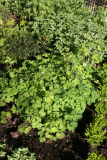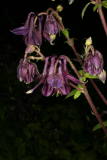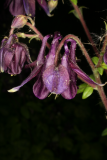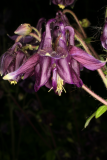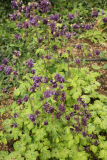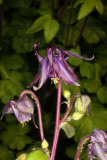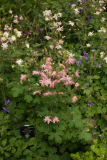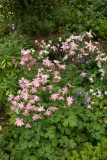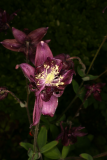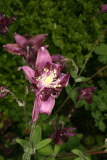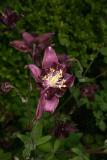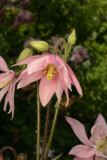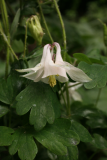Additional notes (click to expand)
Medicinal
"Columbines ; help sore throats.’
Culpeper, Nicholas. (1650). A Physical Directory . London, Peter Cole.
Traditional Herbal Medicine Registration (THMR).
Nomenclature
Columbine, Granny's bonnets
Phytochemistry
Cyanogenic glucosides.
Wink, M. (2009). Mode of Action and toxicology of plant toxins and poisonous plants. Mitt. Julius Kuhn-Inst. 421:93-111. p.104
Toxicity
Class II poison (moderately hazardous) All parts including seeds, contain cyanogenic glycosides - higher doses can induce dizziness, mydriasis, unconsciousness, respiratory problems, ingestion of seeds has been fatal to children.
Wink, M. (2009). Mode of Action and toxicology of plant toxins and poisonous plants. Mitt. Julius Kuhn-Inst. 421:93-111. p.104
Toxic due to cyanogenic glycosides and aconitine-like alkaloids.
Professor Anthony Dayan, 2021
Geographical distribution
- Africa, Northern Africa, Algeria
- Africa, Northern Africa, Morocco
- Europe, Eastern Europe, Baltic States
- Europe, Eastern Europe, Belarus
- Europe, Eastern Europe, East European Russia
- Europe, Eastern Europe, Ukraine
- Europe, Middle Europe, Austria
- Europe, Middle Europe, Belgium
- Europe, Middle Europe, Germany
- Europe, Middle Europe, Hungary
- Europe, Middle Europe, Netherlands
- Europe, Middle Europe, Poland
- Europe, Middle Europe, Slovakia
- Europe, Middle Europe, Switzerland
- Europe, Northern Europe, Great Britain
- Europe, Northern Europe, Ireland
- Europe, Southeastern Europe, Albania
- Europe, Southeastern Europe, Bosnia and Herzegovina
- Europe, Southeastern Europe, Greece
- Europe, Southeastern Europe, Italy
- Europe, Southeastern Europe, Yugoslavia
- Europe, Southwestern Europe, France
- Europe, Southwestern Europe, Portugal
- Europe, Southwestern Europe, Spain
Podcast
Aquilegia vulgaris L.
Family: RANUNCULACEAEGenus: Aquilegia
Species: vulgaris L.
Common names: Columbine; Granny's Bonnet
Pharmacopoeia Londinensis name: Aquilegia
Distribution summary: N.Africa, Europe
Habit: Short-lived Perennial
Hardiness: H5 - Hardy; cold winter
Habitat: Deciduous woods, scrub, hedgerows, calcareous woods
Garden status: Currently grown
Garden location: Pharmacopoeia Londinensis 1618 'Leaves' (HSE 5)
Flowering months: April, May, June, July
Reason for growing: Medicinal, toxic, traditional herbal registration
